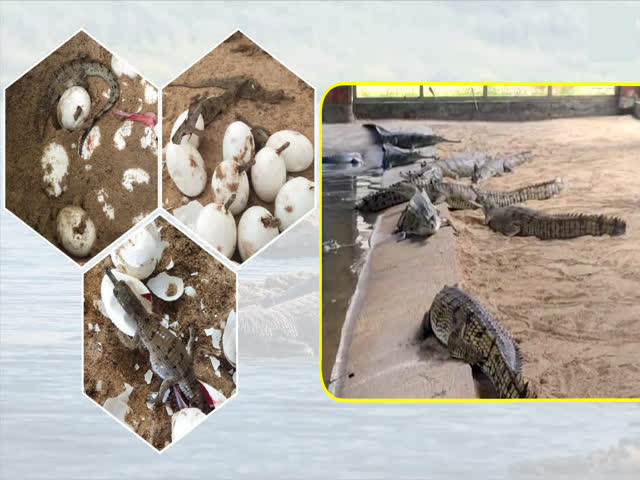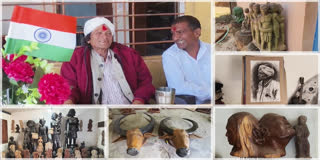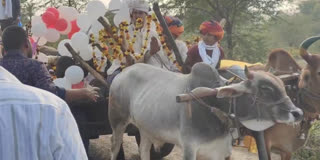WATCH: 200 Alligator Eggs Collected from Chambal River; 181 Babies Come Out at Deori Breeding Centre
🎬 Watch Now: Feature Video


Published : Jun 25, 2024, 7:15 PM IST
|Updated : Jun 25, 2024, 7:34 PM IST
Dholpur : Aquatic wildlife lovers have good news from the Chambal River flowing on the border of the Dholpur district of Rajasthan and Morena district of Madhya Pradesh. Out of 200 alligator eggs collected from this river at the Deori alligator breeding centre, 181 babies have come out safely. One egg has been spoilt and zoologists are waiting for the recall of 18 eggs.
After they become self-sufficient, the alligator babies will be released into the Chambal River to roam freely. The employees of the Deori Breeding Center provide a favourable environment, temperature, food and water for the upbringing of the alligator babies. The family of alligators, crocodiles and dolphins is continuously increasing in the Chambal River.
Alligator Eggs: Jyoti Dandotiya, in-charge of the Deori Rearing Center, said that out of the 200 eggs collected from the Chambal River, 181 baby alligators have been safely taken out. In Deori, 200 eggs are collected from Chambal every year and kept in the hatchery, where a chamber is built. To keep the eggs safe, the temperature is maintained between 30 and 35 degrees. After this, hatching is done.
Safe hatching is done after the sound of the mother's call is heard from the eggs. After the babies come out, the temperature is maintained according to their health. Food and water are also arranged according to the weight of the babies.
Dandotiya said that when the length of alligator cubs is 1.2 meters, they are released to roam freely in the Chambal River. If the length is less, then they are kept in the Deori Sanctuary Center and when they reach the required length, they are released in Chambal.
Mating Season: According to Jyoti Dandotiya, alligators mate in February and lay eggs in April. After this, the babies come out of the eggs in May and June. The female gharial digs a 30 to 40-cm pit in the sand and lays 18 to 50 eggs. If the female gharial is laying eggs for the first time, she can lay 18 to 30 eggs and after this, the number of eggs increases the second time. After about a month, the babies hatch from the eggs. There are nesting sites at about 30 places on the banks of the Chambal River.
Chambal River is considered the safest for aquatic life due to its cleanness and neatness. As a result, the number of aquatic wildlife is increasing every year. Currently, there are 2,456 gharials, 928 crocodiles, 111 dolphins and other aquatic life roaming in Chambal River. From a tourism point of view, the Chambal River attracts tourists from all over the country. Aquatic life lovers from every corner of the country enjoy doing boat safari on the Chambal River.
Breeding Centre: The breeding of alligator species is done in the artificial environment at Deori Gharial Breeding Centre in Morena district. During the survey of rivers worldwide from 1975 to 1977, 200 alligators were found, out of which 46 were found in the Chambal River. The Government of India established a 435 km area of Chambal River as the National Chambal Gharial Sanctuary in the year 1978.
Since then, 200 eggs have been brought from the river every year and reared in the artificial environment at Deori Gharial Breeding Centre. Gharial babies are taken care of and reared at the centre for about three years and after the length of the cubs reaches 1.2 meters, all gharials are released in Chambal river during the winter season.
Read More:
1. WATCH: Jim Corbett National Park Gets Sniffer Dogs To Guard Its Tiger Reserve And Sensitive Boundary





